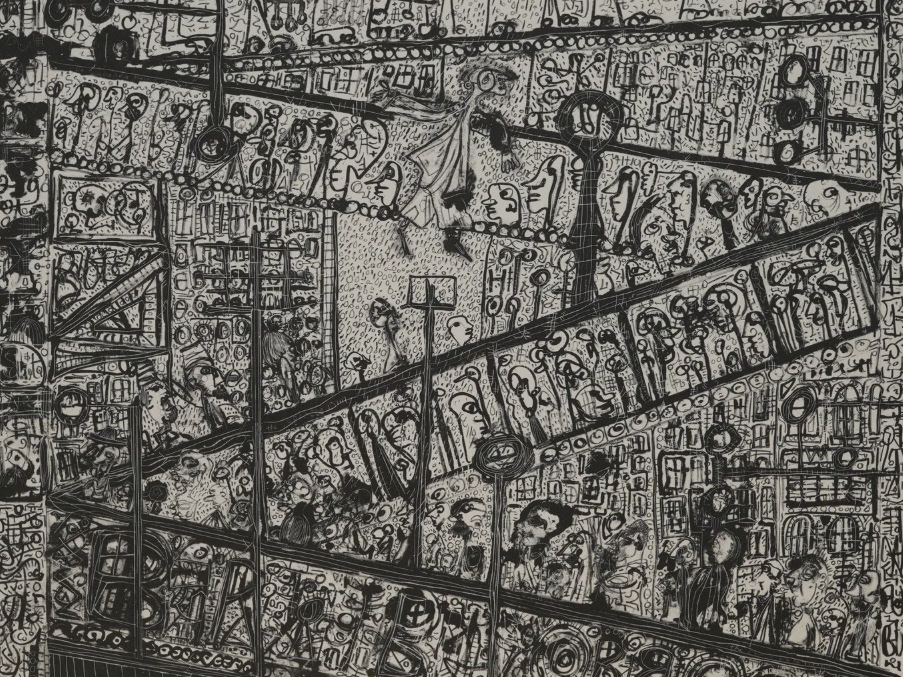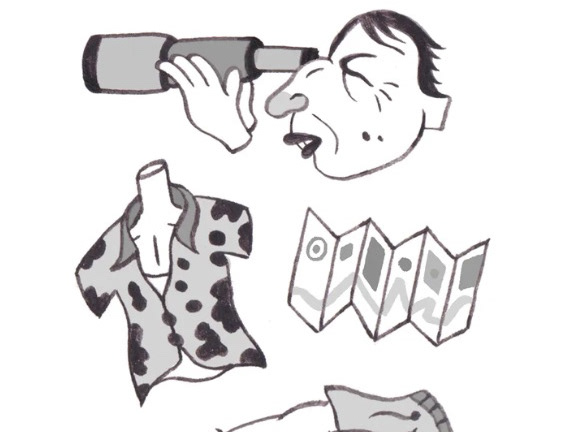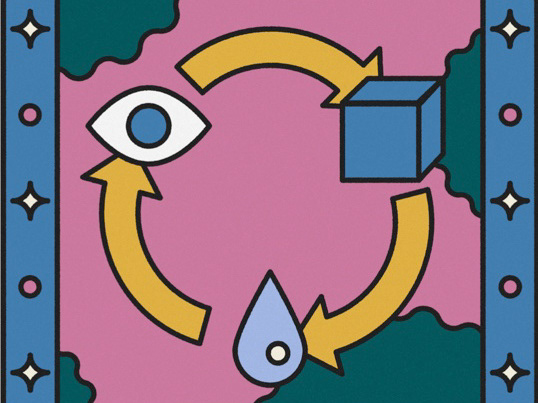Leaders on the Patriots for Europe stage in Madrid
Even the most casual reader of News will have developed a forceful impression of the Far Right. They are an unstoppable rising tide credited with orchestrating an electoral blitzkrieg. Give it a couple of years, they say, and cheap fascist imitators will holding the keys to parliaments and presidential palaces Europe-wide. But this is only half the picture.
We have been told a simple, fable-like narrative. The Far Right are a monstrous bogeyman, the twisted Id of society irrepressibly bursting forth into mainstream politics with the unexpected force of an avalanche. We are told their ideology is hard-set and simple, organically seeded in the minds of gammons and pensioners all the west over with a consistent list of demands and principles. They represent a coherent and organised movement, whose rise has everywhere been steep and linear, and whose destiny is power.
As with any media narrative, it has some basis in facts. The far right has seen stunning electoral gains. This February, Alternative für Deutschland (AfD) doubled its vote share in Germany’s general election to become the second-largest presence in the Bundestag, while France’s Reassemblement National (RN) won the popular vote in this year's legislative elections. The neofascist Brothers of Italy are doing exceedingly well in the polls and their leader, Georgia Meloni, was recently named Europe’s most powerful person. Far-right parties are now in government from Scandinavia to the Balkans.
But, as with any media narrative, the facts are chosen to fit the story, rather than stories chosen to fit fact. The success of the far right hasn't been quite as stunning or sudden as we are led to believe.
The narrative has three broad flaws. One: the far right have been on the scene for a long while - and not always as the fringe act. Two: while their political star now appears to be rising, it has by no means been a steady ascent. Three: the far-right 'movement' is internally diverse and bitterly fractious. One could question whether it should be called a single movement at all.
*
The story of the far-right began long ago. Austria’s Freedom Party, which initially welcomed and was even lead by politically exiled Nazis during the '50s, was an early leader amongst Europe’s far right parties. Its racist policies first became politically palatable in the ‘80s and ‘90s under the controversial leadership of Jörg Haider. Haider reintroduced an unabashed nativism that earlier party leaders had been keen to expurgate. Unlike earlier in the century, when neofascists were dismissed as crank pariahs, Haider transformed this brand of politics into a force to be reckoned with.
The postwar far-right first won power 25 years ago. The Freedom Party entered government in 2000, while Poland’s illiberal Law & Justice Party has been in and out of power since 2005. Victor Orbán’s Fidesz won Hungary’s 2010 election, and hurriedly set about dismantling democratic institutions and civil liberties.
It is now over a decade ago that UKIP won the popular vote in Britain for European Parliament elections. At the time, lots of op-eds were furiously typed up, sounding the alarm for the political duopoly of Labour and the Conservatives. Soon after, Brexit happened, exploding the centrist consensus.
But contrary to the popular narrative, there has been no overwhelming surge in votes for the far-right since then. Reform UK’s vote share in 2024 was only 1.7 percentage points greater than UKIP’s in 2015. In France RN achieved 14.9% of the vote count as early as 1997, a high they only managed to surpass in 2022. And their recent showing in the snap election last year was widely perceived as a failure.
In places support for the far-right has even stalled. Despite remaining the largest parties in their respective lower chambers, Austria’s Freedom and Poland’s Law & Justice both failed to form governing coalitions following recent elections, and were ejected from office in 2019 and 2023 respectively. The liberal-progressive mayor of Bucharest recently won Romania’s presidential election, seeing off a far-right contender.
In Spain the Vox Party’s vote share has declined; the party recently decided to exit local governing coalitions across Spain’s cities and regions. The liberal platform of Rob Jetten has just barely edged Geert Wilders to victory, while in Ireland and New York, there have been remarkable leftwing gains.
Another journalistic sin has been to imply that the far right in different territories jointly form one and the same movement. Sweeping reportage has reified them into a single phenomenon. In reality, they are a plurality of movements, with diverse aims and ideals.
Brothers of Italy and Law & Justice are staunchly pro-Ukraine, while AfD and Fidesz advocate rapprochement with Moscow. Despite a warm personal relationship with Orbán, Meloni blocked Fidesz from joining her European Conservatives and Reformists (ECR) group in the European Parliament. All of Europe’s far right save Orbán are eager to distance themselves from the toxic AfD, who have embraced ‘remigration’ and are ostensibly Nazi apologists; Le-Pen blocked them from joining the Patriots for Europe.
Reform UK, the Dutch Freedom Party and Sweden Democrats are relatively supportive of LGB rights (note the conspicuously absent ‘T’), whereas Brothers of Italy and Law & Justice have enacted heavily homophobic legislation; more than a third of Poland’s territory has been declared LGBT-free.
It is notable that there is not one far-right bloc in the European Parliament, but three. Some parties (RN, the Netherlands’ Party for Freedom) are hard Eurosceptics and want to leave the EU outright. Others (Vox, Law and Justice) are soft Eurosceptics and caution against any further drift toward federalism.
Georgia Meloni has pursued a strategy of wooing Brussels, bringing her inside the mainstream fold. This cosy partnership survived a spat last summer with Ursula Von der Leyen and has won Brothers of Italy a vice-president portfolio within the Commission.
*
Of course, looming large over Europe's rightwing politics is Donald Trump. European leaders consciously fashion their policies, style of politics, even their hair in Trump’s image. The Patriots for Europe use the slogan ‘Make Europe Great Again’. The AfD are talking about ‘remigration’. Many tacitly endorse the Great Replacement Theory, a racist conspiracy beloved by MAGA acolytes.
Motifs, slogans and concepts spill across political scenes, facilitated by borderless online chatrooms which simultaneously act as incubators and diffusers for extreme views. US Think tanks and lobbyists simultaneously spend a lot of time and dollars to export conservative ideology across the Atlantic. Unlike loose online networks, they agitate for focused political change over a specific issue such as abortion access. Research from the Corporate Europe Observatory has found that Christian US right-wing foundations have considerably increased grants to activities in Europe over the past decade.
Steve Bannon, Trump’s one-time chief of staff, did once try to impose some kind of order onto the European right. He said he wanted to become “the infrastructure, globally, for the global populist movement”. In 2017 he founded The Movement, a Brussels based organisation intended to agitate for rightwing populism across Europe.
The Movement was a complete disaster. In spite of an initial buzz from Le Pen, Orbán and Farage, eventually all these leaders distanced themselves from Bannon’s proposals. As of 2019 its only members were Brothers of Italy and its future coalition partner, Lega Nord. A far cry from the ‘supergroup’ Bannon promised.
“The interests of the anti-establishment parties in Europe are quite divergent”, commented an AfD deputy in 2018. “Mr Bannon will not succeed in forging an alliance of the like-minded”.
Not only did Bannon have to contend with differences within Europe. He was attempting to get politicians who are congenitally averse to any kind of international cooperation to cooperate internationally. But even more crucially, there were basic ideological cleavages between the European and American movements that he failed to reconcile. All the cross-fertilisation, the circulation of cash and ideas, couldn't overcome those basic differences.
*
America’s national identity is fashioned around a revolutionary founding myth and a constitution to which conservatives attach great zeal. It is expressed in the argot of ideals: liberty, enterprise, independence.
Often, Americans’ unassailable conviction that the US is a beacon of freedom and democracy — by sheer virtue of identity rather than reason or evidence — means this language can sit alongside practices that are illiberal or antidemocratic.
Paleoconservativism (the kind of conservative thought dominant before WWII and again influential under Trump) opposes free trade, open borders, intervention in foreign policy, and federal overreach. They seek to promote Christian values and (selective) rights enshrined in the constitution, such as the right to bear arms.
The European far right only shares a small part of this ethos. There is social conservatism, yes, and the traditional conservative fiscal aims of deregulation, lower taxes and smaller state expenditure.
But many Republican position issues simply do not make the European right’s blood run hot. Gun rights? pretty settled on that one. Restricting abortion access? It doesn’t get hearts racing. Trump's isolationism and protectionism in international relations actively hurts those European constituents most likely to vote far-right - the factory workers and farmers - while his simpering relationship to Putin wins him no favours with anti-Russia hawks like Meloni.
The European conservative tradition has a different provenance to their American cousins. Without a revolutionary founding myth at the heart of their identities, they are not as steeped in the abstract lexicon of rights and liberty. Without an idealist national vision to evoke, they instead look to their history: preserve the traditional institutions of church, nuclear family and (where it exists) monarchy.
And from history they suffer the scars of fascism and violent regime change, still in living memory. Which creates a very troubled relationship with the extreme right.
By contrast, the current US administration no longer demarcates a hard break between itself and the most noxious recesses of far-right extremism. Trump has amplified QAnon conspiracies, openly defended klansmen and neo-nazis, and nurtured insurrectionism.
The contrast is exacerbated by different cultures of free speech in the US and European countries (again, derived from the different ways rights and ideals figure in their national stories). Holocaust denial is a punishable offence in Austria, France and Germany; the US recognises no such limits.
Even the AfD, sitting at the extreme end of the European far-right, faced a crisis when senior members were exposed to have met with the leader of the ethno-nationalist ‘identitarian’ movement to discuss a programme of mass deportations. Alice Weidel’s influential advisor left his position and the leadership distanced itself from the proposals. Thousands demonstrated, and the scandal likely dampened AfD’s electoral success.
And Meloni at least had the decency to vigorously condemn the fascist salutes of her young supporters — which is more than we can say of Trump who, in the wake of the deadly white supremacist rally in Charlottesville in 2017, described neo-nazis as ‘very fine people’.
Visible cracks are appearing. Bardella cancelled his speech at this year’s CPAC conference in Washington at the last minute, because Steve Bannon made a Nazi salute up on stage the previous day. This followed a similar gesture made by Elon Musk soon after Trump’s inauguration.
For Bardella, with his domestic audience in mind, this made appearing publicly alongside Trump, Vance and Musk — the titans of the American right — untenable. Which is, in itself, quite revelatory.
In January, Musk abruptly withdrew support from Reform UK, following months of rumours he was about to give them the largest donation in British political history. Why? Farage refused to make nice with Tommy Robinson, notorious racist and football hooligan, whose imprisonment had made him a cause célèbre for Musk.
Farage has been firm in drawing and holding a line between his party and those espousing extremist viewpoints — a line Musk doesn’t recognise. His endorsement of outspoken Reform MP Rupert Lowe as an alternative leader has helped deepen a massive rift in a tiny parliamentary party.
The picture most people have of a unified global far-right movement may soon be ruptured, publicly and explosively. We'll just have to wait and see if it makes any differences when it comes to election day.








